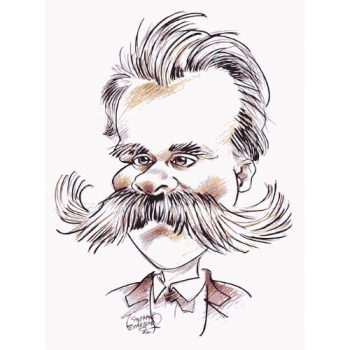“…to be raised and to become active guardians of those living and dead.” (S 63; cp. D, R 63, K 110)
The beginning of this fragment is corrupted. Kahn translates it with an active verb form rather than the passive — “to rise up.” Robinson provides us with the fuller paraphrase from Hippolytus’ Refutation of All Heresies, but one in which Hippolytus erroneously hints that Heraclitus accepted a view of the resurrection of the dead: “[He says that] in his (its presence they arise and become wakeful guardians of living (people) and corpses.”
This fragment is generally thought to refer to Hesiod’s Works and Days (see esp. 121-3), where Hesiod refers to a class of men who “lived like gods” and who were “watchers of mortal men” (see K, pp. 254ff.).
The passage reinforces a reading of Heraclitus that especially Robinson advocates in which a special class of people (such as those who are the best and those who die in war) achieve a personal immortality, even while most simply return to the elements. This of course complicates the reading of Heraclitian monism.
It is perhaps worth highlighting that such guardians would not abide in their heaven with no concern for mortals, but would — like immortals of various earth religions — be actively involved in watching over (likely) the moral lives of those of their communities. Kahn speculates they might represent a range of “fiery phenomena in the sky” — the thunderbolt, the power that “guides all things.” The point would be that they are involved in the governance of the laws of the universe.
